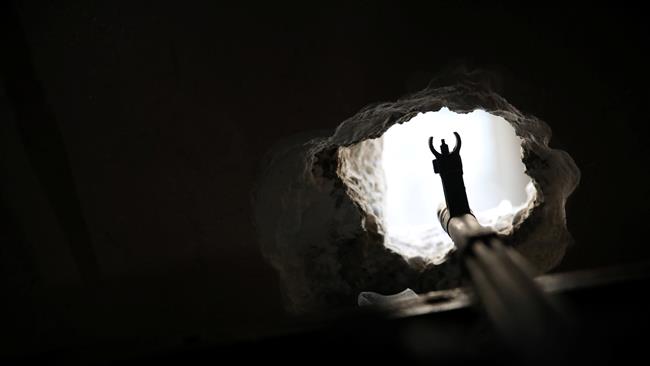
RNA - "Food is available and medical services are being offered by the organizations, but what we really need is more camps. We call for a quick opening of the new camps currently under construction in Salamiya, Bartella and other areas to accommodate more people," said Iraqi Army Brigadier General Jabbar Hassona on Tuesday.
According to the United Nations, nearly half a million civilians had fled the area since the offensive to retake Mosul from Daesh terrorists started on October 17, 2016.
Hassona added that the flow of displaced persons goes up and down in accordance with the military operations in the city. "(It is) going up and down in accordance with the military operation and advancement made by our troops and the opening of safe passages for them," he said.
Meanwhile, the UN has warned that the civilian situation in west Mosul could become the worst during the entire conflict.
The barrel of a machine gun lies on a hole in the wall of a house used by the Iraqi Federal Police to fight Daesh in western Mosul, Iraq, April 18, 2017.
"If there is a siege and hundreds of thousands of people don’t have water and don’t have food, they will be at enormous risk," said Lisa Grande, the deputy special representative of the United Nations Assistance Mission for Iraq (UNAMI). "We could be facing a humanitarian catastrophe, perhaps the worst in the entire conflict," she added.
Iraqi army soldiers and pro-government fighters from Popular Mobilization Units, commonly known by the Arabic word Hashd al-Sha’abi, have made sweeping gains against the Takfiri elements since launching the operation to retake Mosul.
The Iraqi forces took control of eastern Mosul in January after 100 days of fighting, and launched the battle in the west on February 19.
847/940